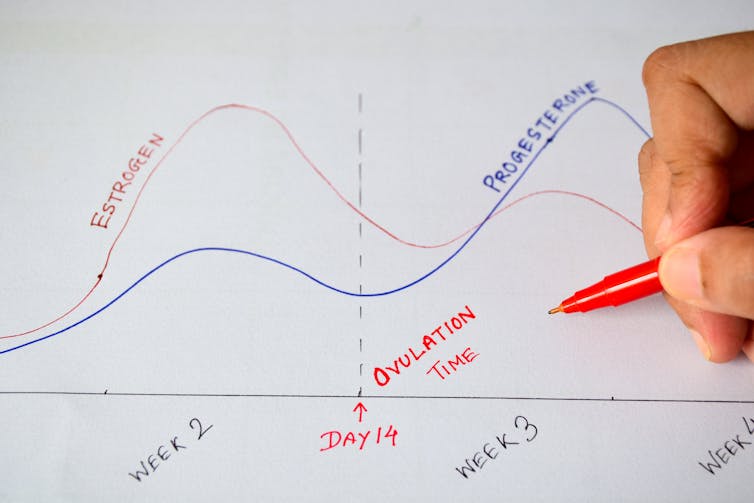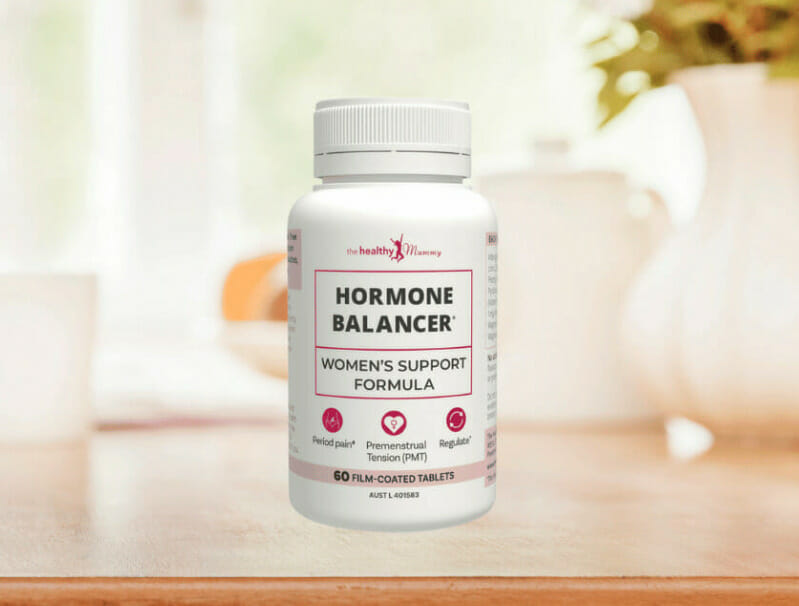How hormones can affect ADHD
How hormones and the menstrual cycle can affect women with ADHD: 5 common questions
Have you noticed that your levels of attention may slightly change during your menstrual cycle?
This may be particularly noticeable for women and people assigned female at birth with attention deficit hyperactivity disorder (ADHD). They have differences in their ability to easily focus and sustain their attention. There may be times during their menstrual cycle when it seems harder to plan, organise and focus their attention. And they may find their ADHD medication doesn’t seem to work as well.
Very little research has explored the interaction between female hormones and symptoms of ADHD. But women with ADHD could gain much from greater insights into the mechanisms of this effect.
Here are five questions women and girls commonly ask about their hormones and ADHD symptoms.

1. Can hormones impact ADHD symptoms?
There is growing awareness of the relationship between sex hormones and neurotransmitters. Neurotransmitters pass messages between neurons in the brain.
Dopamine is a neurotransmitter important for motivation, reinforcement and reward. It’s a chemical that makes you feel good and has key roles for our executive functions, including attention.
For people with ADHD, the regulation of dopamine is thought to differ. For example, it is thought there are lower levels of dopamine in the brain’s synapses (the connections between neurons) in people with ADHD. Our best current theory is that lowered synaptic dopamine contributes to ADHD symptoms and difficulties with focusing attention in a flexible way, maintaining attention and regulating activity levels.
Medications for ADHD, such as the psychostimulant methylphenidate (usually called Ritalin), help to make more dopamine available in the synapse. We think this is one of the reasons why symptoms of ADHD reduce and attention is improved with ADHD medication.
Sex hormones, including estrogen and progesterone, fluctuate naturally through different phases of a woman’s life. Fluctuations in sex hormone levels can affect brain function by altering levels of neurotransmitters, including dopamine and serotonin which is important for mood.
The relationship between sex hormones and neurotransmitter levels is complex. Animal studies have shown higher levels of estrogen are linked to increased levels of dopamine. Progesterone also appears to influence dopamine levels, but the relationship between dopamine and progesterone is less clear.
2. What happens to my attention over my menstrual cycle?
Estrogen and progesterone levels fluctuate across the menstrual cycle. The key phases of the menstrual cycle are the follicular phase (referring to the first days of menstruation until ovulation), and the luteal phase (the days between ovulation and the following the period).
Estrogen levels gradually rise during the follicular phase, fall after ovulation and rise again during the mid-luteal phase, before decreasing at the end of the cycle. Progesterone levels are low during the follicular phase and rise in the luteal phase.
Research exploring whether attention changes across the menstrual cycle is inconsistent.
However, for women sensitive to menstrual cycle hormone fluctuations, the premenstrual or late luteal phase is associated with poorer attention, higher anxiety and stress, or at the more severe end of the mood spectrum, premenstrual dysphoric disorder (a severe form of premenstrual syndrome).
Studies show some attention-related tasks are performed better when there are higher levels of estrogen, such as before ovulation. Performance may be poorer when there are lower levels of estrogen and higher levels of progesterone, such as in the couple of weeks after ovulation and before menstruation. This fits with what many women with ADHD report anecdotally: their attention is better before ovulation and can worsen after.

3. What if I’m on the contraceptive pill?
There is little research on this for women with ADHD. Oral contraceptive pills do not appear to alter attention in the general population, but they can increase depression risk in some women.
For girls and women with ADHD, research suggests the risk of depression when using oral contraceptives is even higher.

4. What will happen to my ADHD symptoms if I have a baby?
Estrogen levels increase during pregnancy and drop after birth. These and other hormonal changes at this time have potential to impact cognition and ADHD symptoms.
However, there is a lack of research in pregnant women with ADHD, how ADHD symptoms might change and whether ADHD medications may need to be stopped or adjusted.
5. What about when I’m perimenopausal or in menopause?
The fluctuating and eventually declining levels of estrogen (specifically estradiol) during perimenopause are associated with “brain fog” for many women. Symptoms often include difficulties with attention and higher order executive functions (such as planning, organising and decision making).
While studies have not specifically investigated ADHD symptoms during menopause, a recent study found four weeks of psychostimulant use improved mid-life onset executive-function difficulties in perimenopausal and early post-menopausal women.
Anecdotally women with ADHD report their ADHD symptoms can worsen during perimenopause and menopause.

What needs to happen next
Women and girls with ADHD have been neglected for too long. Learning more about how hormones impact ADHD symptoms in women and girls with ADHD is an urgent research need.
Such work could lead to clinical guidelines about altering medications for ADHD as hormones fluctuate, specific hormone treatments for girls and women with ADHD, and how women with ADHD can best be supported. For now, girls and women with ADHD should talk to their doctor (a general practitioner, psychiatrist, paediatrician or gynaecologist/obstetrician) about their individual circumstances and what support they may benefit from.
Read more: The link between your hormones and weight loss or gain
This article is republished from The Conversation under a Creative Commons license. Read the original article.
Introducing Healthy Mummy Hormone Balancer

Hormone Balancer, a women’s support formula with four key foundations in mind:
Relief from Period Pain & PMT
Support for Hormones
Balance
Regulation
This supplement harnesses natural ingredients traditionally used in Western herbal medicine including Chaste Tree, White Peony Flower and important vitamins and minerals. Each ingredient contributes a powerful benefit.










